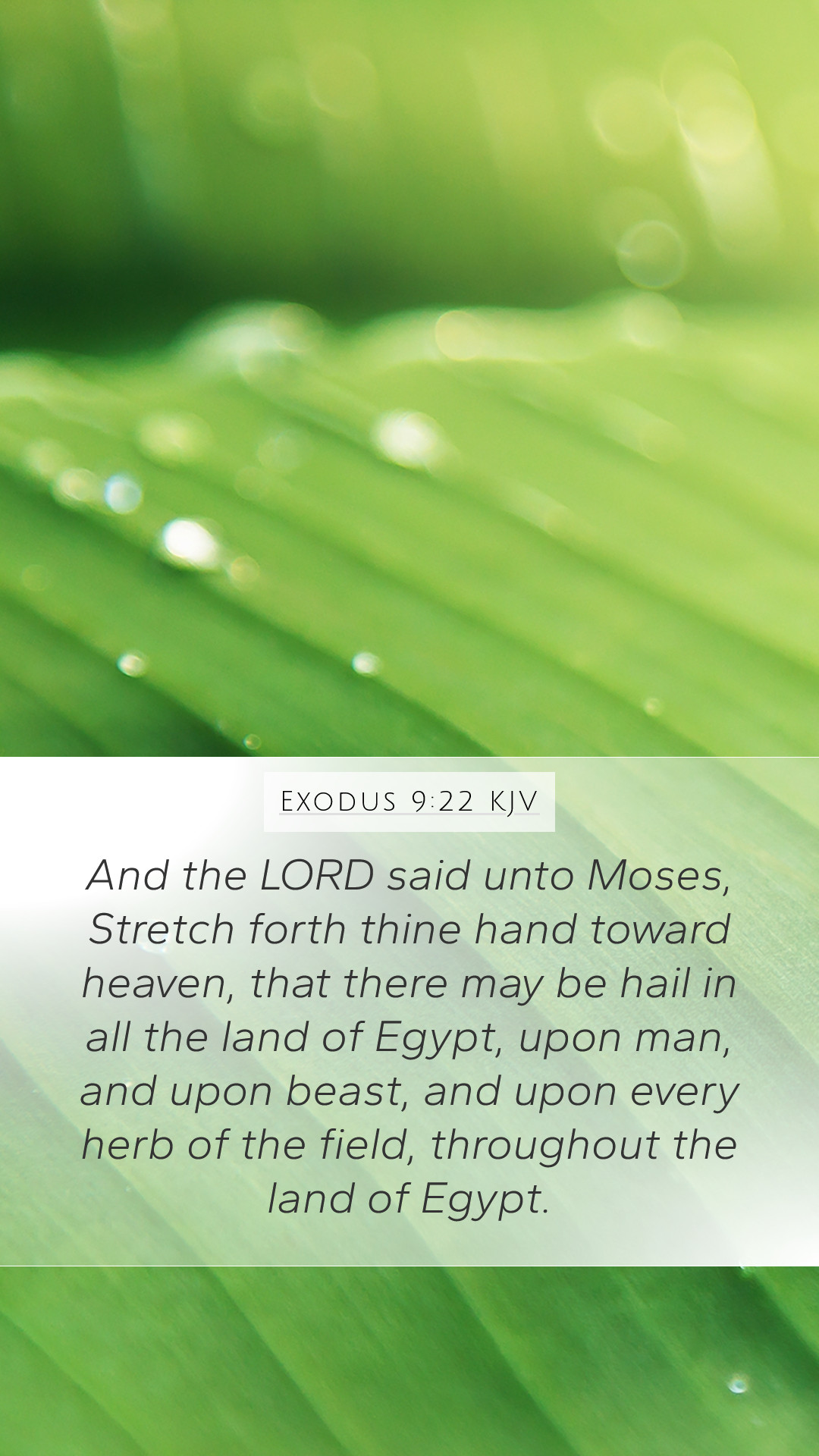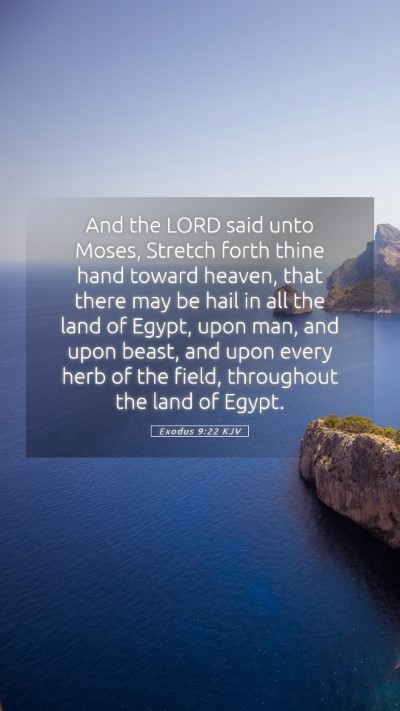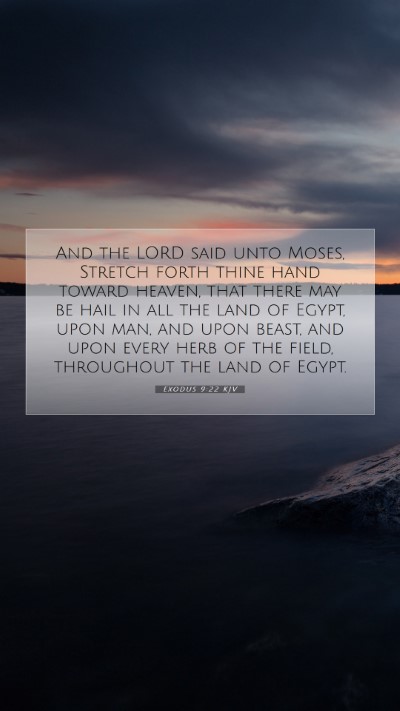Bible Verse Commentary on Exodus 9:22
Verse: Exodus 9:22 - "And the LORD said unto Moses, Stretch forth thine hand toward heaven, that there may be hail in all the land of Egypt, upon man, and upon beast, and upon every herb of the field, throughout the land of Egypt."
Overview: This verse describes a command from God to Moses concerning the seventh plague inflicted upon Egypt as a judgment against Pharaoh and his people for their oppression of the Israelites. The intention behind this act was to demonstrate God's power and sovereignty.
Meaning of the Verse
In analyzing this scripture, we see multiple layers of meaning, which can be elucidated through insights from prominent biblical commentators.
1. God’s Sovereignty and Power
Commentaries by Matthew Henry highlight that the command to Moses signifies the direct involvement of God in the affairs of men. God exercises dominion over creation and intervenes in natural processes, showcasing His might. This act of sending hail serves as a stark reminder to the Egyptians of the consequences of their rebellion against divinely established authority.
2. A Call to Repentance
According to Albert Barnes, each plague served not only as a punishment but also as an opportunity for repentance. The hail represented imminent destruction, urging the Egyptians and Pharaoh to recognize the futility of resisting God’s will. It underscores the biblical theme that divine judgments are meant to lead to reflection and, hopefully, a change of heart.
3. Symbolism of the Plagues
Adam Clarke discusses the symbolic meaning behind the plagues, including the hail. Hail here can be seen as a manifestation of divine displeasure. The specific command to strike heaven for the hail illustrates the connection between celestial and terrestrial realms; the heavens respond to God’s will, and what happens in the earthly realm serves to highlight the gravity of divine intervention in human affairs.
4. Historical Context
This verse occurs during a time of great oppression for the Israelites under Egyptian rule. Understanding this historical context is important for grasping the deeper implications of God's actions. The plagues serve as an ultimatum to Pharaoh, calling for recognition of God’s supremacy and a release of the Israelite people from bondage.
5. Contemporary Application
There are significant lessons for modern readers regarding authority, responsibility, and the nature of divine judgment. Just as the Egyptians were called to recognize God’s authority, contemporary society is equally challenged to acknowledge divine sovereignty in their lives. This verse can serve as a prompt for self-reflection about openness to God's will.
Biblical Cross References
- Exodus 7:14-24 - The plagues of Egypt begin, showing God's power over the Nile.
- Exodus 8:1-15 - The plague of frogs, demonstrating God's ability to control nature.
- Exodus 10:1-20 - The plague of locusts, furthering the lesson on obedience to God.
- Job 38:22-23 - God speaks of treasures of hail, emphasizing His control over natural phenomena.
- Psalms 78:47-48 - Remembers the plagues, underlining God's might against the Egyptians.
Conclusion
Exodus 9:22 stands as a significant verse within the narrative of the Exodus story. It illustrates God's power and sovereignty, the nature of His judgments, and serves as a call to repentance. Drawing insights from respected biblical commentaries enriches our understanding of this scripture. As individuals engage in Bible study insights, exploring such verses prepares them for practical applications in daily life, ensuring a deeper understanding of Scripture and its relevance.
Further Study and Reflection
For those involved in Bible study groups or using online Bible study tools, this passage presents a valuable opportunity for reflection on authority, submission, and divine oversight. Consider utilizing Bible study guides and Bible study resources to expand upon this analysis and incorporate the findings into practical lessons.


